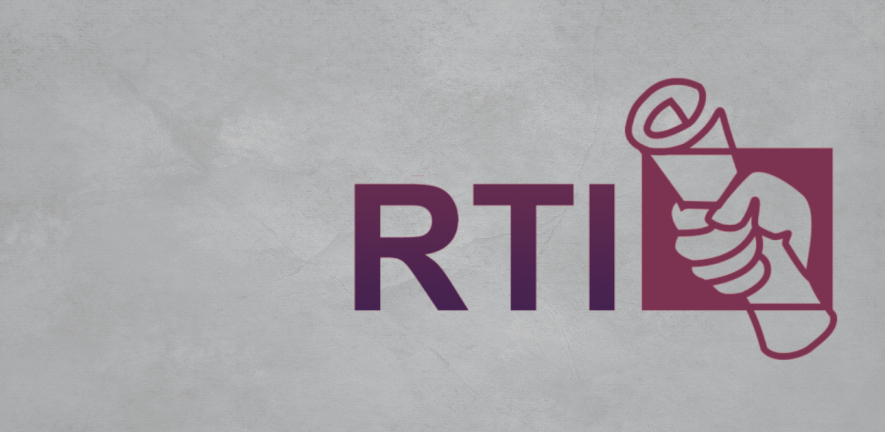As RTI Act Completes 17 Years, Huge Backlog of Pending Cases May Undo its Effectiveness

TODAY marks 17 years of the implementation of the Right to Information Act, 2005 (‘RTI Act’) in India. On October 11, Satark Nagrik Sangathan, a citizens’ group working to promote transparency and accountability in government, published a compilation of key findings of its ‘Report Card on the Performance of Information Commissions in India, 2021-22’.
The report has examined the performance of all 29 state Information Commissions in India, in terms of the number of appeals and complaints registered and disposed off by them, the number of pending cases, the estimated waiting time for the disposal of an appeal/complaint filed in each commission, the frequency of violations penalised by commissions, and the transparency in their working.
The key findings of the report suggest that two information commissions – Jharkhand and Tripura – are completely defunct. Currently, in these two information commissions, all the posts of information commissioners, including that of the Chief Information Commissioner, are vacant. It is because no new commissioners have been appointed upon the incumbents’ demitting office.
Besides these two, four state commissions, in Manipur, Telangana, West Bengal and Andhra Pradesh, are functioning without Chief Information Commissioners. The absence of a chief information commissioner has serious ramifications for the effective functioning of the RTI Act. The Act envisages a critical role for the chief information commissioner, including superintendence, management and direction of the affairs of the information commission.
In Maharashtra, Bihar, Odisha, West Bengal and Karnataka, state information commissions are functioning with reduced capacity.
In the Central Information Commission (‘CIC’), three posts of commissioners continue to be vacant even though the backlog of the number of appeals or complaints currently stands at nearly 26,800.
Alarming rate of backlog
Further, the report states that 2,12,443 appeals and complaints were registered between July 1, 2021 and June 30, 2022 by 25 state information commissions. During this period, 2,27,950 cases were disposed of by 27 commissions for which information could be obtained.
As on June 30 this year, 3,14,323 appeals and complaints were pending in 26 information commissions. In Maharashtra, an alarming number of 99,772 appeals and complaints are pending.
The Tamil Nadu state commission did not provide the requisite information under the RTI Act, claiming that that information could not be provided without the approval of the legislative assembly.
The estimated time required for the disposal of an appeal or complaint in the CIC is 11 months, it is revealed.
The backlog of appeals and complaints has also been steadily increasing. An assessment done in 2019 found that as of March 31, 2019, a total of 2,18,347 appeals and complaints were pending in the 26 information commissions, which has climbed to 2,86,325 as of June 30 this year.

Source: Satark Nagrik Sangathan report
The report used the average monthly disposal rate and the pendency in each commission to compute the time it would take for an appeal or complaint to be disposed of. The assessment shows that the West Bengal State Information Commission would take an estimated 24 years and 3 months to dispose of a matter. Therefore, as per the current rate of disposal, a matter filed on July 1, 2022 would be disposed of in 2046.
Similarly, in Odisha and Maharashtra, the estimated time for disposal is more than five years. In Bihar, it is more than two years. Overall, there are 12 commissions that would take an estimated waiting time of one year or more to dispose of a matter.

Source: Satark Nagrik Sangathan report
The long delays in the disposal of cases can be attributed largely to two factors: vacancies in commissions, and the tardy rate of disposal by commissioners.
Penalties not imposed
The analysis of penalties imposed by the information commissions shows that they did not impose penalties in 95 per cent of the cases, where penalties were potentially imposable.
The RTI Act empowers the commissions to impose penalties of up to Rs. 25,000 on erring Public Information Officers (‘PIOs’) for violations of the RTI Act. The penalty clause is one of the key provisions in terms of giving the law its teeth and acting as a deterrent for PIOs against violating the law.
While the state commission of Uttar Pradesh claimed to have imposed penalties in the highest number of cases, it has not maintained any report to substantiate the same, reveals the study.
Twenty commissions have not published their annual reports on the implementation of the RTI Act for 2020-21. Section 25 of the RTI Act obligates each commission to prepare a report on the implementation of the provisions of the statute. The report has to be prepared every year, and is to be laid before the Parliament or the state legislature.
Only the CIC, and state commissions of Arunachal Pradesh, Assam, Chhattisgarh, Gujarat, Mizoram, Sikkim and Uttar Pradesh, have published their annual reports for 2021 and made them available on their official websites.
The state commissions of Andhra Pradesh and Telangana have not published their annual reports since the constitution of the respective commissions in 2017, following the bifurcation of the erstwhile state of Andhra Pradesh.
Get the latest reports & analysis with people's perspective on Protests, movements & deep analytical videos, discussions of the current affairs in your Telegram app. Subscribe to NewsClick's Telegram channel & get Real-Time updates on stories, as they get published on our website.























